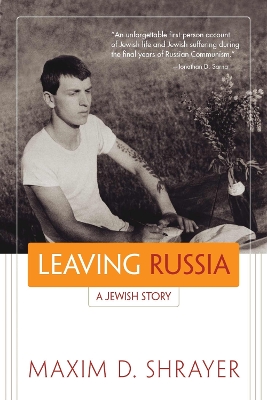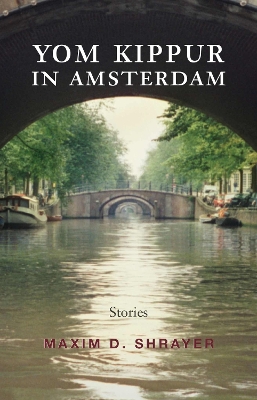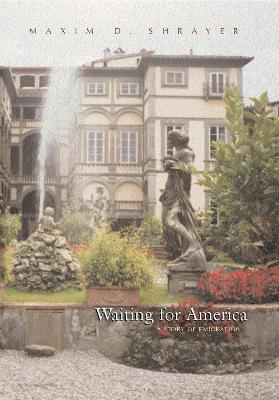Library of Modern Jewish Literature
3 total works
A memoir of coming of age and struggling to leave the USSR. Shrayer chronicles the triumphs and humiliations of a Soviet childhood and expresses the dreams and fears of a Jewish family that never gave up its hopes for a better life.
Whether set in Maxim Shrayer's native Russia or in North America and Western Europe, the eight stories in this collection explore emotionally intricate relationships that cross traditional boundaries of ethnicity, religion, and culture. Tracing the lives, obsessions, and aspirations of Jewish-Russian immigrants, these poignant, humorous, and tender stories create an expansive portrait of individuals struggling to come to terms with ghosts of their European pasts while simultaneously seeking to build new lives in their American present. The title story follows Jake Glaz, a young Jewish man apprehensive about intermarriage to a Catholic woman. After realizing Erin will not convert, Jake leaves the United States to spend Yom Kippur in Amsterdam, 'a beautiful place for a Jew to atone'. In ""Sonetchka,"" a literary scholar and his former Moscow girlfriend reunite in her suburban Connecticut apartment. As they reminisce about their Soviet youth and quietly admire each other's professional successes, both wrestle with the curious mix of prosperity, loneliness, and insecurity that defines their lives in the United States. Yom Kippur in Amsterdam takes the immigrant narrative into the twenty-first century. Emerging from the tradition of Isaac Babel, Vladimir Nabokov, and Isaac Bachevis Singer, Shrayer's vibrant literary voice significantly contributes to the evolution of Jewish writing in America.
In 1987, a young Jewish man, the central figure in this captivating book, leaves Moscow for good with his parents. They celebrate their freedom in opulent Vienna and spend two months in Rome and the coastal resort of Ladispoli. While waiting in Europe for a U.S. refugee visa, the book's twenty-year-old poet quenches his thirst for sexual and cultural discovery. Through his colorful Austrian and Italian misadventures, he experiences the shock, thrill, and anonymity of being in a Western democracy, running into European roadblocks while shedding Soviet social taboos. As he anticipates entering a new life in America, he movingly describes the baggage that exiles bring with them, from the inescapable family ties to the sweet cargo of memory. An emigration story, ""Waiting for America"" explores the rapid expansion of identity at the cusp of a new, American life. Told in a revelatory first-person narrative, ""Waiting for America"" is also a vibrant love story, in which the romantic protagonist is torn between Russian and Western women. Filled with poignant humor and reinforced by hope and idealism, the author's confessional voice carries the reader in the same way one is carried through literary memoirs like Tolstoy's ""Childhood"", ""Boyhood"", ""Youth"", Hemingway's ""Moveable Feast"", or Nabokov's ""Speak"", ""Memory"". Babel, Sebald, and Singer - all transcultural masters of identity writing - are the coordinates that help to locate Waiting for America on the greater map of literature.


